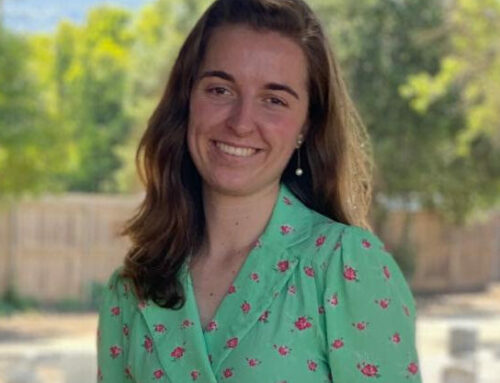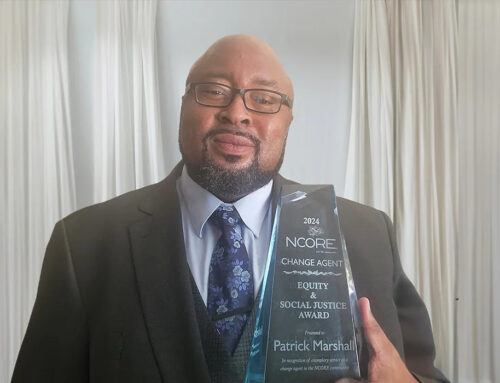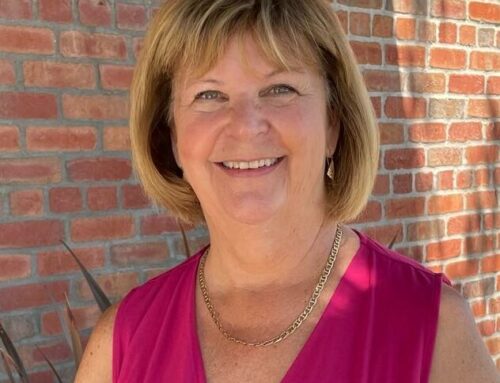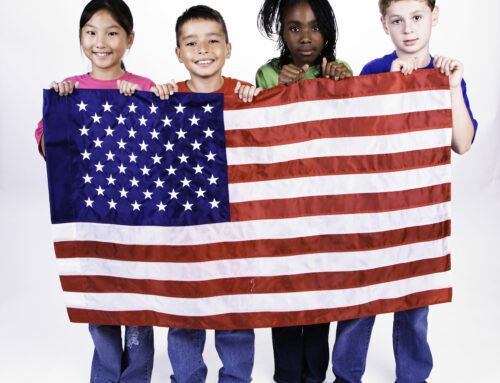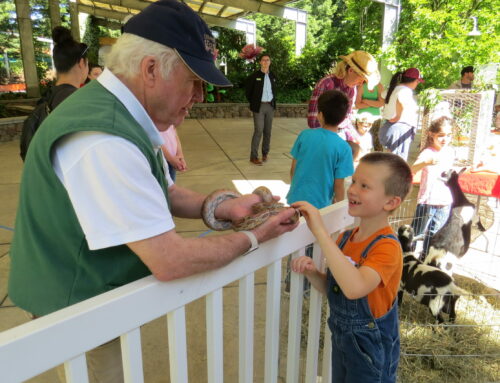Story of Morgan Hill woman’s father told in Holocaust Museum LA exhibit
![]()
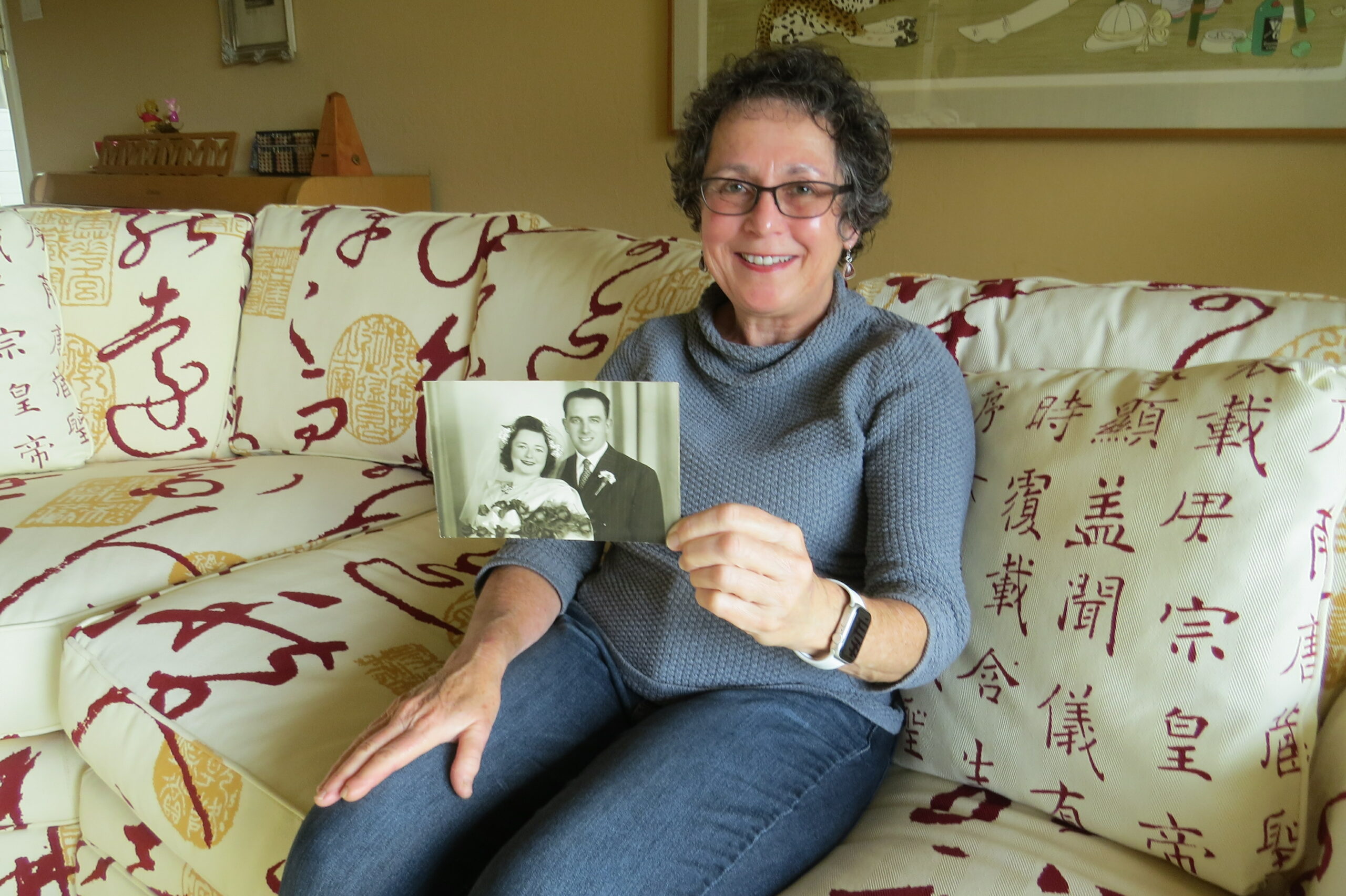
Photo by Marty Cheek
Joyce Maskell holds a photo of her father and mother. Her father was one of 20,000 Jews who escaped to China during the Holocaust.
By Calvin Nuttall
Joyce Maskell and her family faced evacuation from their Jackson Oaks home in August 2020 due to advancing wildfires. Forced to make decisions about what to take, she remembered the boxes of irreplaceable photographs, letters and postcards she inherited from her parents who survived the Holocaust.
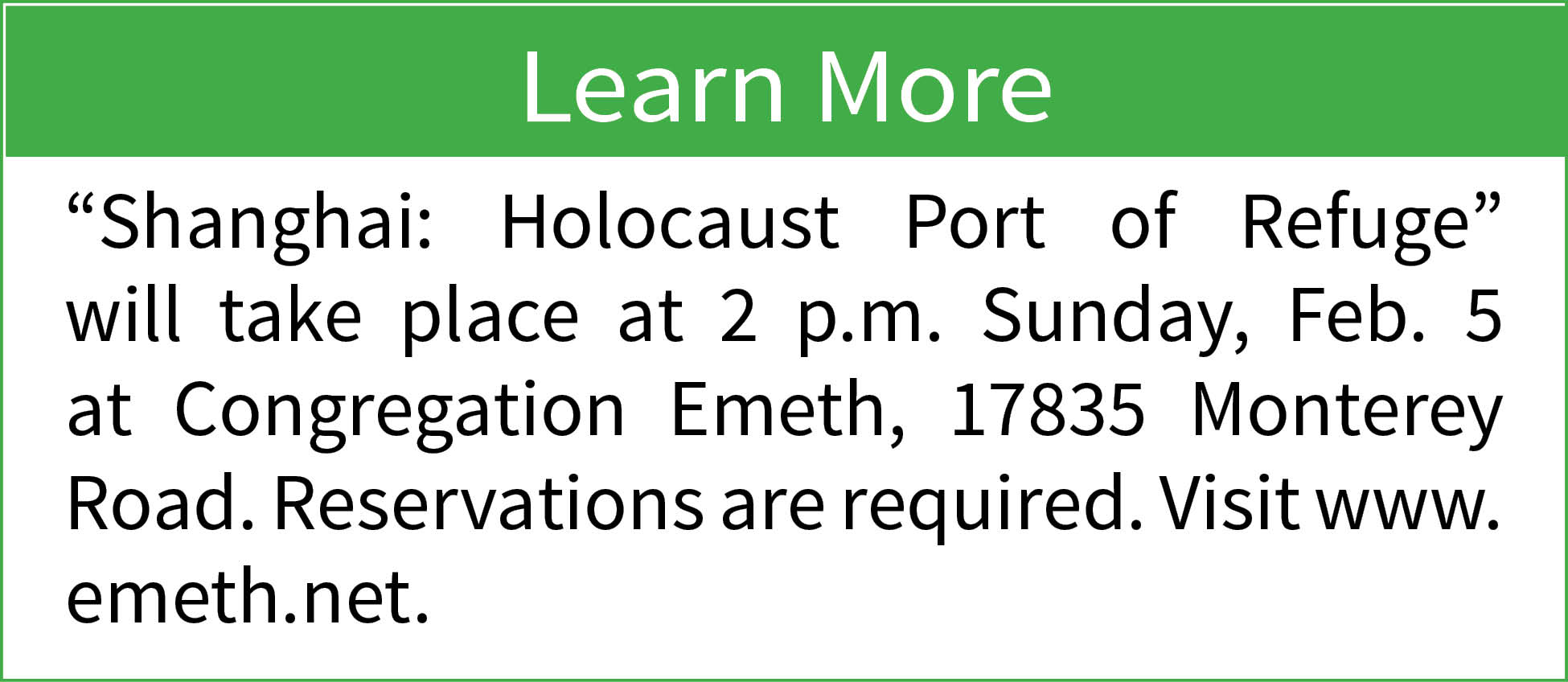 Gathering these possessions of family history during the emergency served as the impetus for her to seek out a safe and permanent home for her family’s legacy. They later were displayed as part of a special exhibit at the Holocaust Museum LA of Jewish people who fled to Shanghai, China.
Gathering these possessions of family history during the emergency served as the impetus for her to seek out a safe and permanent home for her family’s legacy. They later were displayed as part of a special exhibit at the Holocaust Museum LA of Jewish people who fled to Shanghai, China.
This chapter of the Holocaust is an important and little known story of perseverance, escape, and survival. South Valley residents can learn the history of the 20,000 Jewish refugees who fled Nazi-controlled Europe to the Asian nation at the “Shanghai: Holocaust Port of Refuge” event that will be held 2 p.m. Sunday, Feb. 5, at Congregation Emeth in Morgan Hill.
Maskell’s mother, Alice Friedmann (born Edelstein) from Vienna, survived three and a half years in concentration camps, including Auschwitz. Her father, John Friedmann, a native of northern Austria, was “miraculously” released from Buchenwald and spent the war years in Shanghai, China, she said.
“There weren’t many places on Earth that would allow Jews to come in,” Maskell said. “You could go to Shanghai without a visa. That is what made it unique. In the beginning, people tried to get out of Nazi-occupied Europe in different ways, but at some point it was impossible, almost, to go anywhere. And Shanghai became an option.”
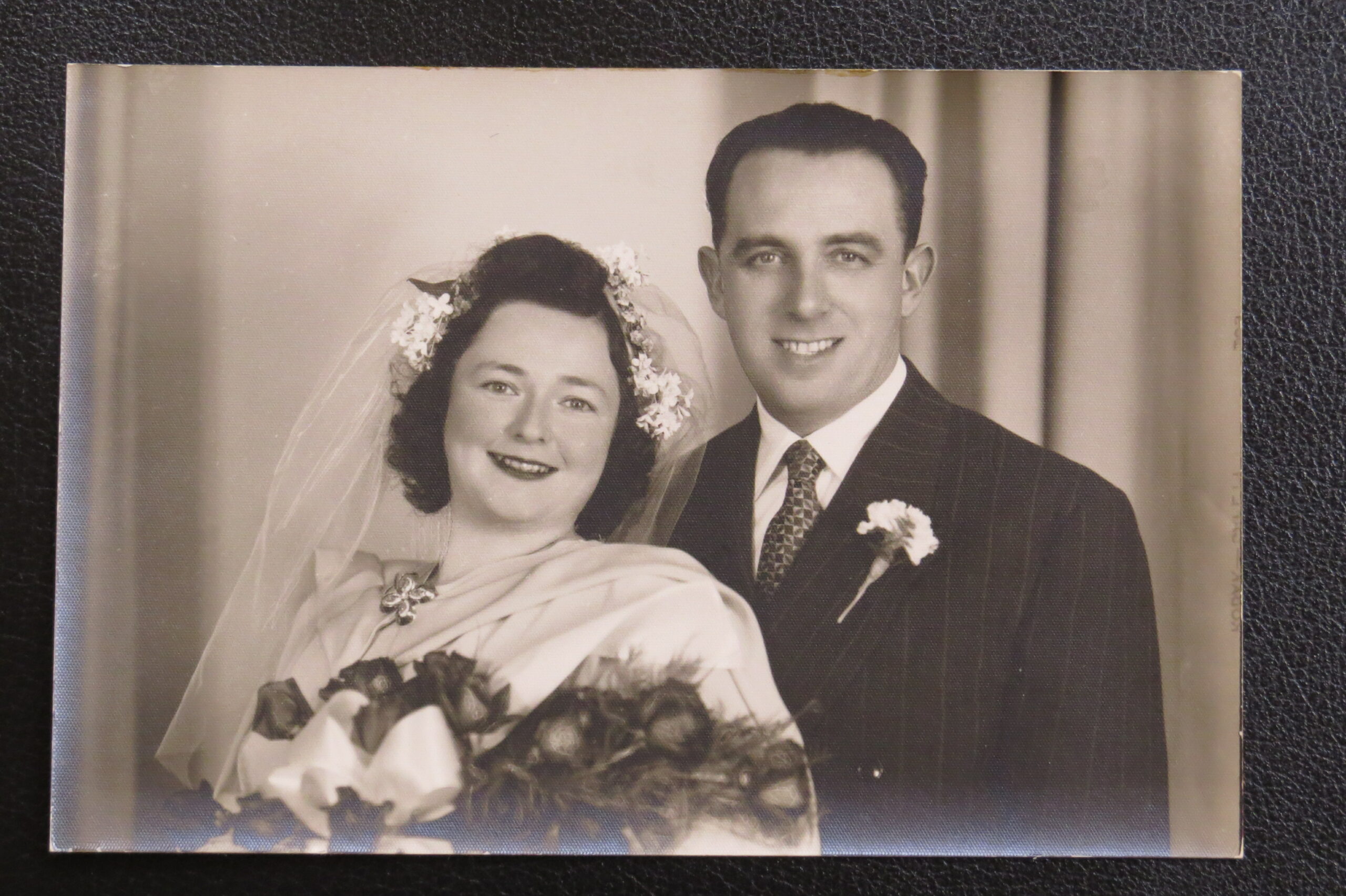
Friedmann’s journey began in a small rural town in northern Austria where he lived in 1939. As the Nazis swept across the country, they demanded citizens turn over Jews and other members of groups considered undesirable. A neighbor turned in Friedmann. The Nazis sent him to the Dachau concentration camp in Germany, then later transferred him to Buchenwald.
The young man’s story got more dramatic at this point, Maskell said.
“His mother knew somebody in the regular police department in that area, and she asked her friend to do what he could to get her son out of the camp,” she said. “He went there and told the heads of the camp that my father was a criminal and he needed to take him into custody and bring him to the police for questioning. And so he was released.”
Freed, Friedmann was eventually able to obtain a ticket on an ocean liner and made a long voyage to China. There, he found work as an auto mechanic in a growing community of mostly German and Austrian Jews who also found safety there.
“The conditions were primitive. Depending on your outlook, it could have been seen as a very distressing life,” Maskell said. “Everything you knew, your life, your culture, you left it behind. There was squalor. There were rats running in the street. Eventually, the Japanese came, and the Jews were forced into a ghetto. He was there for 10 years.”
Click HERE to visit the Holocaust Museum LA special exhibit online
 Having grown up in the Los Angeles area, Maskell contacted Holocaust Museum LA and was told the museum would be thrilled to add her belongings to their collection. In winter 2021, she learned the museum was planning an exhibit titled “Hidden History: Recounting the Shanghai Jewish Story.”
Having grown up in the Los Angeles area, Maskell contacted Holocaust Museum LA and was told the museum would be thrilled to add her belongings to their collection. In winter 2021, she learned the museum was planning an exhibit titled “Hidden History: Recounting the Shanghai Jewish Story.”
A year ago, Christie Jovanovic, the museum’s curator of collections, came to Maskell’s Morgan Hill home and asked to borrow her Shanghai collection. Maskell’s family was one of five highlighted in the exhibit which ran last year from April 24 to Aug. 28. The museum also created a video lecture in conjunction with the exhibit called “Inside the Acid-Free Box: Shanghai Jewish Life During the Holocaust.” (To view it, visit www.holocaustmuseumla.org.)
“If not for COVID-19, the exhibit would have opened and closed before I connected with the Holocaust Museum,” Maskell said. “I guess the stars were aligned.”
As a member of Congregation Emeth’s Adult Education Committee, Maskell floated the idea of creating a program based on the lecture. The program evolved into something bigger, as other survivors or their descendants came forward to share their stories, too. Joining her are recently retired Bay Area Congresswoman Jackie Speier; Renee Maimann, a 95-year-old Shanghai survivor from San Jose; Jordanna Gessler, Holocaust Museum L.A. vice president of education and exhibits; and Jovanovic.
When she was just 11 years old in 1938, Renee Maimann and her family escaped Vienna for Shanghai.
Speier recently discovered her father, Manfred Speier, and grandfather sheltered in Shanghai during the Holocaust, also. Her father had invented a past for himself that did not include his Jewish heritage or his time spent in Shanghai, she said.
“I am honored to be part of the program and look forward to learning more about my family’s history,” Speier said in a press release.
Maskell drew parallels to today’s migrant crisis in Europe as a result of the war in Ukraine. The war has created the largest refugee movement since World War II. She emphasized the enduring relevance of the lessons of the Holocaust and the importance of hearing stories from the survivors today.
 “Some of the neighboring countries aren’t letting everyone in,” Maskell said. “For certain ethnic groups, it is maybe a little trickier to get into Poland, for example.”
“Some of the neighboring countries aren’t letting everyone in,” Maskell said. “For certain ethnic groups, it is maybe a little trickier to get into Poland, for example.”
About 6.3 million Ukrainians have crossed into neighboring countries during the crisis, according to the UN Refugee Agency. An additional 6.6 million are displaced internally within Ukraine, and more than 13 million are unable to leave the affected areas.
The current situation is similar to what many Jews faced 80 years ago, Maskell said. Even the U.S. would not take Jewish refugees in to keep them safe.
“My parents came here to be in a free country, where everybody is welcome. And maybe that’s an exaggeration,” she said. “I guess I would have hoped America would have had open arms. Like the poem from Emma Lazarus says on the Statue of Liberty, ‘Give me your tired, your poor, your huddled masses, yearning to breathe free.’ You would hope that would be what this is all about, here in America. But it wasn’t always like that. It wasn’t like that during World War II — and even now there are a lot of road blocks.”
Calvin Nuttall is a Morgan Hill native with a passion for nature, science, and technology.


